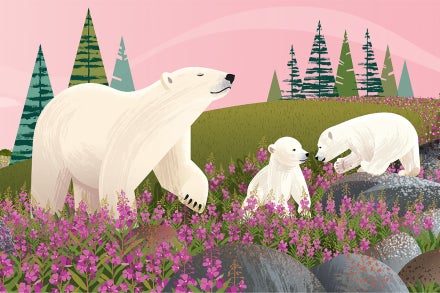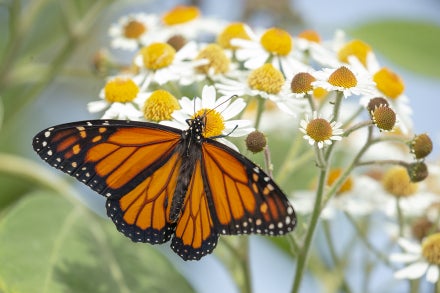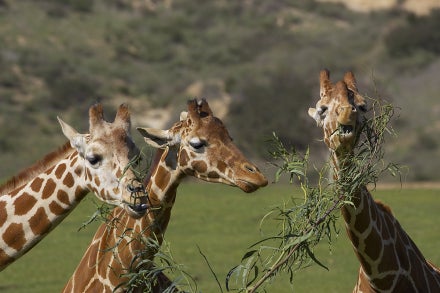Image

Zoo Internquest is a seven week career exploration program for San Diego County high school juniors and seniors. Students have the unique opportunity to meet professionals working for the San Diego Zoo, Safari park, and Institute for Conservation Research, learn about their jobs, and then blog about their experience online. Follow their adventures here on the Zoo’s website!
 I spent the session on Wednesday seeing and interacting with animal after animal. From feeding flamingos as they groomed my notebook, to petting a zebra, the day was filled with absolutely amazing memories that I don’t think I am ever going to forget. However, through all the experiences, the information that impacted me most is what I learned about palm oil. Several of the animal species that I have seen both on Wednesday and throughout my time in InternQuest, are threatened due to, in part, the palm oil industry. Through the production of palm oil, large parts of rainforest are cut down in Southeast Asia. This deforestation has led to the destruction of an environment that so many animals in the area are dependent on for their survival. The effect of falling in love with an animal, while simultaneously learning about it, is what can be referred to as “edutainment.”
The Animals in Action program is a part of the San Diego Zoo’s animal connections department and is one of the many programs that uses “edutainment.” After a short detour by the cheetah exhibit, our guide Kelly Elkins took us to the Animals in Action stage where we were quick to meet one of the Zoo’s clouded leopards. As with every animal I meet, I was very fast to fall completely in love with the leopard. This love was very quickly followed by heartache as I learned that there are roughly only 2,000-3,000 of these animals left in the wild. This is due to the aforementioned palm oil industry in Southeast Asia. After I got home from the Zoo, I immediately inspected the dish soap I had been using for years, as its name was, “palmolive dish soap.” After some research I’ve found that the brand previously used palm oil in its soap, but no longer does so. The very fact that I was so suspicious of my dish soap is testament to the effect that “edutainment” can have on someone’s sustainable behaviors.
Similar to what I said in my first blog entry, by getting people attached to these animals, while simultaneously educating them on conservation threats, the Zoo cultivates a culture of change. Ms. Elkins and her team inspire guests to do whatever they can do to help the animals worldwide. In the case of Ganda, the clouded leopard, it can be as simple as buying a product without palm oil, or supporting a brand that uses sustainable palm oil. Although one consumer changing their mind may not have that big of an effect, if enough people do it, there will be a visible change. Other zoos such as the Cheyenne Mountain Zoo have even created apps to help consumers identify products that use non-sustainable palm oil. The the goal of the Animals in Action program and others like it is to get as many people as they can to make these small changes, in order to make a much bigger change in the lives of these animals. By giving guests a more intimate experience with the animals at the Zoo, the program increases the odds that this change will happen.
The Zoo has a mission to save as many animals as they can, and every session I get more and more amazed by what they do in pursuit of this mission. The amount of work they do in effort to make a tangible change for so many species is honestly incredible. I only wish I could share more of it, but I can only write so much in these blogs. I hope you enjoyed this blog, and that maybe what you read has inspired you to make a change. I know it’s made me want to help even more than before.
Amber, Conservation Team
Week Five, Winter 2018
I spent the session on Wednesday seeing and interacting with animal after animal. From feeding flamingos as they groomed my notebook, to petting a zebra, the day was filled with absolutely amazing memories that I don’t think I am ever going to forget. However, through all the experiences, the information that impacted me most is what I learned about palm oil. Several of the animal species that I have seen both on Wednesday and throughout my time in InternQuest, are threatened due to, in part, the palm oil industry. Through the production of palm oil, large parts of rainforest are cut down in Southeast Asia. This deforestation has led to the destruction of an environment that so many animals in the area are dependent on for their survival. The effect of falling in love with an animal, while simultaneously learning about it, is what can be referred to as “edutainment.”
The Animals in Action program is a part of the San Diego Zoo’s animal connections department and is one of the many programs that uses “edutainment.” After a short detour by the cheetah exhibit, our guide Kelly Elkins took us to the Animals in Action stage where we were quick to meet one of the Zoo’s clouded leopards. As with every animal I meet, I was very fast to fall completely in love with the leopard. This love was very quickly followed by heartache as I learned that there are roughly only 2,000-3,000 of these animals left in the wild. This is due to the aforementioned palm oil industry in Southeast Asia. After I got home from the Zoo, I immediately inspected the dish soap I had been using for years, as its name was, “palmolive dish soap.” After some research I’ve found that the brand previously used palm oil in its soap, but no longer does so. The very fact that I was so suspicious of my dish soap is testament to the effect that “edutainment” can have on someone’s sustainable behaviors.
Similar to what I said in my first blog entry, by getting people attached to these animals, while simultaneously educating them on conservation threats, the Zoo cultivates a culture of change. Ms. Elkins and her team inspire guests to do whatever they can do to help the animals worldwide. In the case of Ganda, the clouded leopard, it can be as simple as buying a product without palm oil, or supporting a brand that uses sustainable palm oil. Although one consumer changing their mind may not have that big of an effect, if enough people do it, there will be a visible change. Other zoos such as the Cheyenne Mountain Zoo have even created apps to help consumers identify products that use non-sustainable palm oil. The the goal of the Animals in Action program and others like it is to get as many people as they can to make these small changes, in order to make a much bigger change in the lives of these animals. By giving guests a more intimate experience with the animals at the Zoo, the program increases the odds that this change will happen.
The Zoo has a mission to save as many animals as they can, and every session I get more and more amazed by what they do in pursuit of this mission. The amount of work they do in effort to make a tangible change for so many species is honestly incredible. I only wish I could share more of it, but I can only write so much in these blogs. I hope you enjoyed this blog, and that maybe what you read has inspired you to make a change. I know it’s made me want to help even more than before.
Amber, Conservation Team
Week Five, Winter 2018
 I spent the session on Wednesday seeing and interacting with animal after animal. From feeding flamingos as they groomed my notebook, to petting a zebra, the day was filled with absolutely amazing memories that I don’t think I am ever going to forget. However, through all the experiences, the information that impacted me most is what I learned about palm oil. Several of the animal species that I have seen both on Wednesday and throughout my time in InternQuest, are threatened due to, in part, the palm oil industry. Through the production of palm oil, large parts of rainforest are cut down in Southeast Asia. This deforestation has led to the destruction of an environment that so many animals in the area are dependent on for their survival. The effect of falling in love with an animal, while simultaneously learning about it, is what can be referred to as “edutainment.”
The Animals in Action program is a part of the San Diego Zoo’s animal connections department and is one of the many programs that uses “edutainment.” After a short detour by the cheetah exhibit, our guide Kelly Elkins took us to the Animals in Action stage where we were quick to meet one of the Zoo’s clouded leopards. As with every animal I meet, I was very fast to fall completely in love with the leopard. This love was very quickly followed by heartache as I learned that there are roughly only 2,000-3,000 of these animals left in the wild. This is due to the aforementioned palm oil industry in Southeast Asia. After I got home from the Zoo, I immediately inspected the dish soap I had been using for years, as its name was, “palmolive dish soap.” After some research I’ve found that the brand previously used palm oil in its soap, but no longer does so. The very fact that I was so suspicious of my dish soap is testament to the effect that “edutainment” can have on someone’s sustainable behaviors.
Similar to what I said in my first blog entry, by getting people attached to these animals, while simultaneously educating them on conservation threats, the Zoo cultivates a culture of change. Ms. Elkins and her team inspire guests to do whatever they can do to help the animals worldwide. In the case of Ganda, the clouded leopard, it can be as simple as buying a product without palm oil, or supporting a brand that uses sustainable palm oil. Although one consumer changing their mind may not have that big of an effect, if enough people do it, there will be a visible change. Other zoos such as the Cheyenne Mountain Zoo have even created apps to help consumers identify products that use non-sustainable palm oil. The the goal of the Animals in Action program and others like it is to get as many people as they can to make these small changes, in order to make a much bigger change in the lives of these animals. By giving guests a more intimate experience with the animals at the Zoo, the program increases the odds that this change will happen.
The Zoo has a mission to save as many animals as they can, and every session I get more and more amazed by what they do in pursuit of this mission. The amount of work they do in effort to make a tangible change for so many species is honestly incredible. I only wish I could share more of it, but I can only write so much in these blogs. I hope you enjoyed this blog, and that maybe what you read has inspired you to make a change. I know it’s made me want to help even more than before.
Amber, Conservation Team
Week Five, Winter 2018
I spent the session on Wednesday seeing and interacting with animal after animal. From feeding flamingos as they groomed my notebook, to petting a zebra, the day was filled with absolutely amazing memories that I don’t think I am ever going to forget. However, through all the experiences, the information that impacted me most is what I learned about palm oil. Several of the animal species that I have seen both on Wednesday and throughout my time in InternQuest, are threatened due to, in part, the palm oil industry. Through the production of palm oil, large parts of rainforest are cut down in Southeast Asia. This deforestation has led to the destruction of an environment that so many animals in the area are dependent on for their survival. The effect of falling in love with an animal, while simultaneously learning about it, is what can be referred to as “edutainment.”
The Animals in Action program is a part of the San Diego Zoo’s animal connections department and is one of the many programs that uses “edutainment.” After a short detour by the cheetah exhibit, our guide Kelly Elkins took us to the Animals in Action stage where we were quick to meet one of the Zoo’s clouded leopards. As with every animal I meet, I was very fast to fall completely in love with the leopard. This love was very quickly followed by heartache as I learned that there are roughly only 2,000-3,000 of these animals left in the wild. This is due to the aforementioned palm oil industry in Southeast Asia. After I got home from the Zoo, I immediately inspected the dish soap I had been using for years, as its name was, “palmolive dish soap.” After some research I’ve found that the brand previously used palm oil in its soap, but no longer does so. The very fact that I was so suspicious of my dish soap is testament to the effect that “edutainment” can have on someone’s sustainable behaviors.
Similar to what I said in my first blog entry, by getting people attached to these animals, while simultaneously educating them on conservation threats, the Zoo cultivates a culture of change. Ms. Elkins and her team inspire guests to do whatever they can do to help the animals worldwide. In the case of Ganda, the clouded leopard, it can be as simple as buying a product without palm oil, or supporting a brand that uses sustainable palm oil. Although one consumer changing their mind may not have that big of an effect, if enough people do it, there will be a visible change. Other zoos such as the Cheyenne Mountain Zoo have even created apps to help consumers identify products that use non-sustainable palm oil. The the goal of the Animals in Action program and others like it is to get as many people as they can to make these small changes, in order to make a much bigger change in the lives of these animals. By giving guests a more intimate experience with the animals at the Zoo, the program increases the odds that this change will happen.
The Zoo has a mission to save as many animals as they can, and every session I get more and more amazed by what they do in pursuit of this mission. The amount of work they do in effort to make a tangible change for so many species is honestly incredible. I only wish I could share more of it, but I can only write so much in these blogs. I hope you enjoyed this blog, and that maybe what you read has inspired you to make a change. I know it’s made me want to help even more than before.
Amber, Conservation Team
Week Five, Winter 2018




